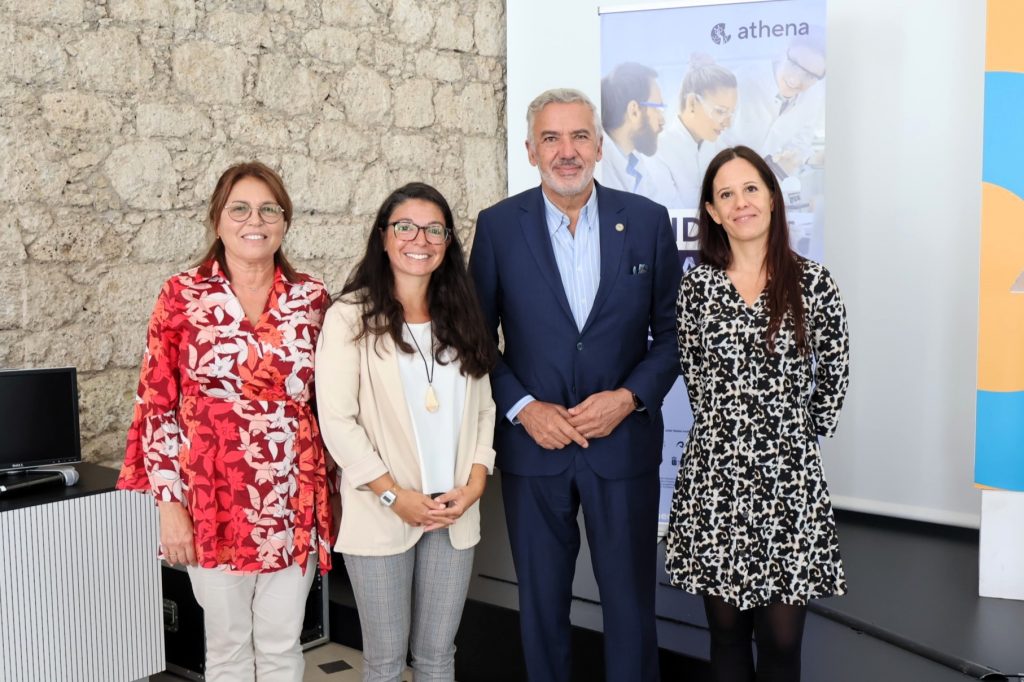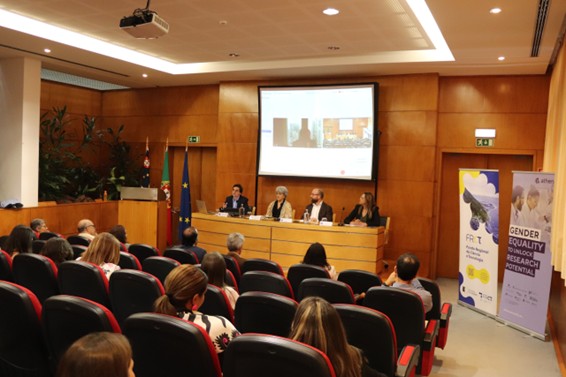
ATHENA published its first set of Policy Recommendations to Strengthen Gender Equality in Research and Innovation
The ATHENA project has published its first policy brief, presenting practical recommendations aimed at advancing gender equality in research and innovation (R&I). These insights were developed under Deliverable 6.7: Policy Brief for Feedback to the European Commission – 1 (2023), and draw from ATHENA’s extensive experience and collaborations with sister projects such as SPEAR, CALIPER, GENDERACTION, and LeTSGEPs.
The recommendations are designed to support European and national policymakers, as well as Research Performing Organisations (RPOs) and Research Funding Organisations (RFOs), in their efforts to foster more inclusive and equitable environments.
What do the recommendations cover?
- Promoting Gender Equality in the European Research Area (ERA):
Strengthening gender diversity in research teams, decision-making bodies, and evaluation panels is essential for creating a more balanced and innovative research landscape. - Strengthening Gender Equality in financing programmes:
Horizon Europe, the EU’s flagship funding programme, serves as a cornerstone for gender mainstreaming in R&I. The recommendations emphasise building on its momentum to enhance policies and ensure inclusivity in future frameworks. - Empowering RPOs and RFOs with tailored Gender Equality Plans (GEPs):
Using tools like the ATHENA Toolkit, organisations are encouraged to design GEPs that go beyond compliance, focusing on systemic change through leadership commitment, targeted training, and robust monitoring.
Why Are These Recommendations Important?
Gender equality remains a keystone of innovation and competitiveness in Europe. By addressing systemic barriers and fostering diversity, research institutions and policymakers can unlock the full potential of all individuals, regardless of gender.
These recommendations also serve as a practical guide for organisations designing, implementing, and monitoring inclusive GEPs. They build on real-world examples and best practices that can be tailored to different institutional contexts.
Infographics for Key Recommendations
To make these recommendations more accessible, the ATHENA project has created three infographics, each focusing on one of the key areas. These visual tools are available for download below:

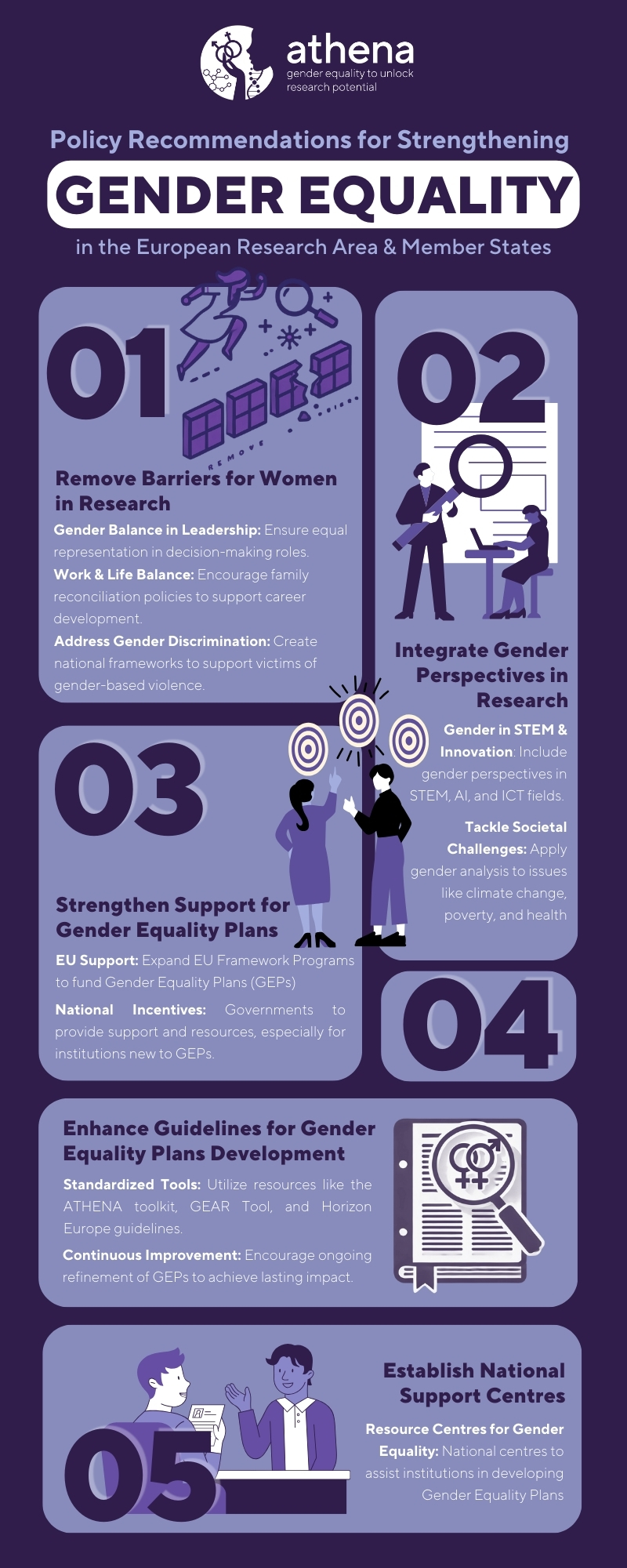
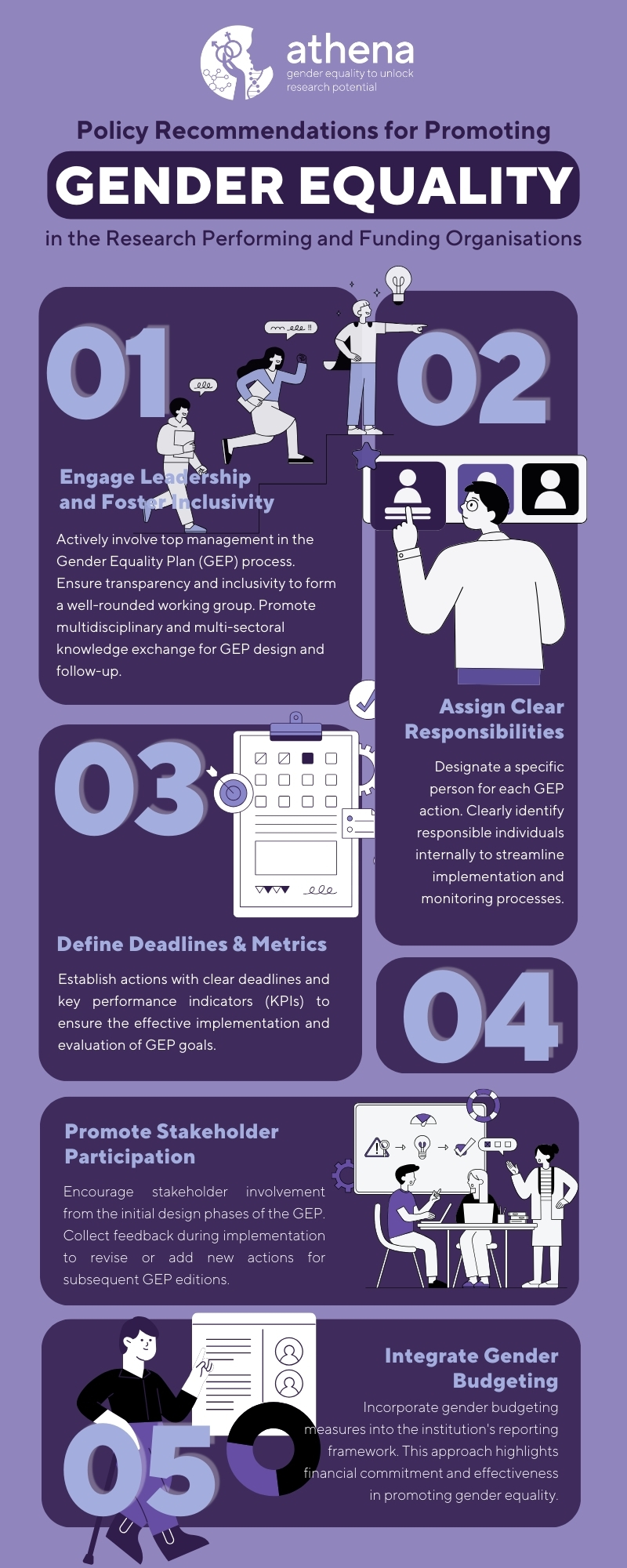
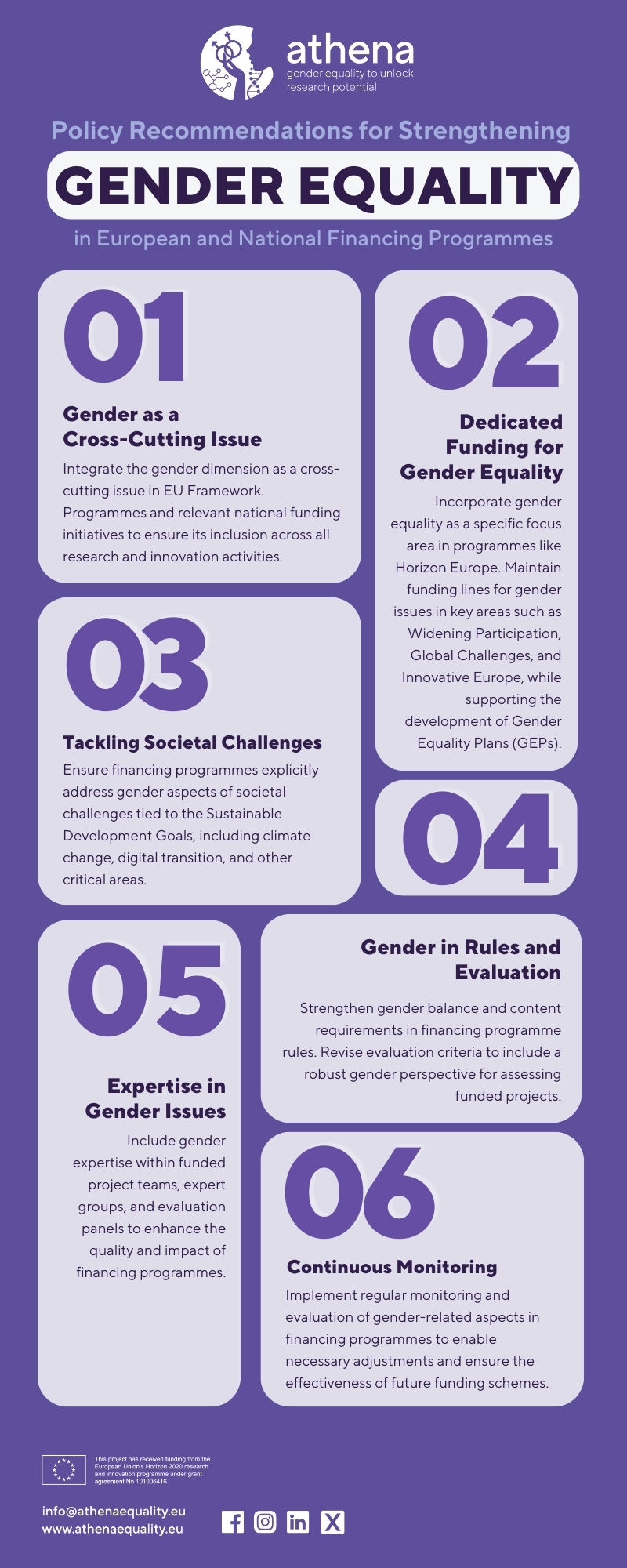
![[PRESS RELEASE] ATHENA Hosts High-Level Discussions on Gender Equality in European Research](https://www.athenaequality.eu/wp-content/uploads/2025/03/PRESS-RELEASE-1.jpg)
